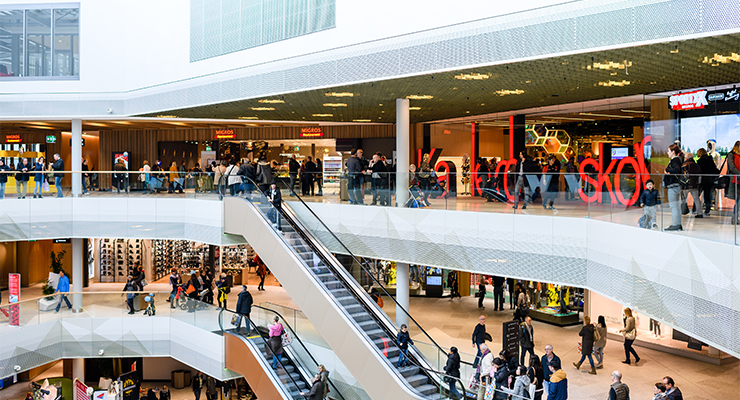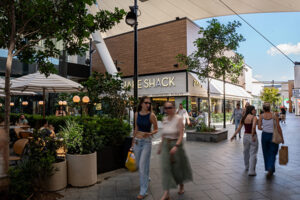While Chinese online platforms are putting pressure on e-commerce, many centers are scoring points with experience, proximity and service – and are recording rising sales. The reason: Successful retail destinations today focus on experience orientation, flexibility and everyday usage concepts. Investors recognize the potential – and act accordingly.
Quality of stay, design identity, gastronomic variety and services with real added value are crucial. Digitalization can support these experiences – for example through customer loyalty systems or orientation aids – but it cannot replace them, emphasized the report.
While in the current discussion about the growing influence of Chinese online platforms such as Temu or Shein, it is often suggested that stationary shopping formats in particular are suffering from this development, the issue is even more nuanced, as it is not Swiss shopping centers that are losing market share, but primarily Swiss online retailers, reveals the findings of the study “Online Shopping Tourism Switzerland 2024”.
Switzerland has a total of 195 shopping centers with around 2.5 million square meters of rentable space. They generate around 18% of retail sales, which corresponds to a volume of around CHF 18.7 billion in 2024. In comparison, Swiss online retail achieved total sales of CHF 14.9 billion in 2024. It is striking that domestic online retail grew by just 1% to CHF 12.3 billion, while foreign providers – particularly from China – recorded sales growth of 18% to CHF 2.6 billion. Online shopping tourism, i.e. purchases from foreign platforms, increased by an impressive 44% between 2021 and 2024 and now accounts for around 29% of e-commerce.
Strategic implications for all industry players
Brick-and-mortar retail – especially shopping centers – remains largely stable. In fact, many centers are succeeding in increasing their attractiveness by increasingly establishing themselves as multifunctional meeting places. A key differentiating feature is that shopping centers today are far more than just shopping destinations. The competition with e-commerce has numerous implications for the commercial real estate business.
For owners and investors, real estate value increasingly depends on emotional appeal, a clear profile and sustainable infrastructure.
For retailers and retail brands, stationary experiences must be staged in a targeted manner. Adaptability and brand identity are crucial. Center planners & developers: Planning must be modular, diverse and digitally supported. Experience, sustainability and a curated tenant mix are mandatory.
As for cities and communities, coordinated urban development with shared objectives and high-quality public spaces is the key to vitalization.
The complete report is available, in German here.







